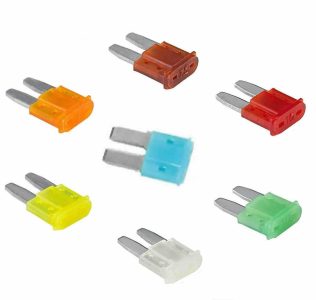Specialized Fuses for Automotive Charging Ports to Prevent Power Surge Damage
News 2025-10-24
In the evolving electric vehicle landscape, power surges represent a critical threat to automotive charging infrastructure. These surges, often triggered by grid fluctuations, lightning, or internal faults, can cause significant damage to charging ports, resulting in costly repairs and safety issues. Fuses tailored for automotive applications serve as a vital defense mechanism, rapidly interrupting excessive current to protect sensitive components and ensure uninterrupted charging operations. By integrating such fuses, manufacturers and users can enhance the durability and reliability of EV systems, reducing the risk of electrical failures.

Application Scenarios in Automotive Charging
Automotive fuses for power surge protection are essential across various real-world settings. In residential environments, they safeguard home charging units against voltage spikes from unstable power sources. Public charging stations, such as those in urban parking areas or along highways, rely on these fuses to maintain service reliability amid frequent usage and environmental stresses. For commercial fleets, including electric buses and delivery vehicles, fuses minimize downtime by preventing surge-related damage during high-volume charging cycles, thereby supporting efficient operations and extending equipment lifespan.
Performance Advantages of These Fuses
Fuses designed for automotive charging ports deliver superior performance through key attributes. They respond in microseconds to overcurrent events, effectively halting surges before harm occurs, which is crucial for protecting delicate electronics. These components also feature high thermal stability and resistance to automotive vibrations, ensuring consistent functionality in demanding conditions. With customizable current ratings, they provide precise protection tailored to specific charging systems, improving energy efficiency and reducing the likelihood of false activations, ultimately contributing to longer system reliability and lower maintenance needs.
Frequently Asked Questions
1. What is the primary function of a fuse in automotive charging ports?
A fuse protects against excessive current by melting and breaking the circuit, thus preventing damage from power surges and ensuring system safety.
2. How do these fuses enhance the longevity of charging equipment?
By quickly isolating faults, fuses reduce wear on components, minimizing the risk of degradation and extending the operational life of charging ports.
3. What should users consider when installing these fuses?
Factors include matching the fuse rating to the system’s voltage and current requirements, ensuring proper placement for accessibility, and adhering to manufacturer guidelines for optimal protection.


